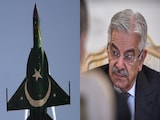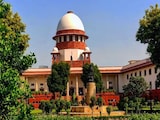- "Did you do your homework, the one assigned by me": PM asked Shukla
- "I did it, and it was very important, sir," the astronaut replied
- PM had asked him to record all elements of his mission for the Gaganyaan programme
When Prime Minister Narendra Modi asked astronaut Shubhanshu Shukla about the "homework" he assigned him, the first Indian to travel to the International Space Station (ISS) replied with a smile, "Very good progress has been made, sir."
The two met at the Prime Minister's residence in New Delhi on Monday, where Indian Air Force Group Captain Shukla briefed PM Modi on his landmark mission and shared his experiences in space.
Recalling how colleagues reacted about the PM's "homework", Mr Shukla said, "People laughed with me, and after that meeting they teased me, saying 'your Prime Minister has given you homework'. But I did it, and it was very important, sir. Obviously, we were aware of it, that's why I went. The mission was successful, sir, and we have returned. But this is not the end of the mission; it is only the beginning."
Shubhanshu Shukla spent 20 days in space as part of the mission and 18 days aboard the ISS. He docked on June 26 and landed on Earth on July 15.
During the meeting, PM Modi also asked Mr Shukla about the changes he felt upon returning to Earth. He replied, "The brain takes time to understand that we have to walk. It does take a while to adapt back to this environment. When I came back, I was not able to walk, and people had to hold me up."
The same adjustment process occurred when he first reached the ISS, he said.
Onboard the station, he conducted experiments on tardigrades, myogenesis, cyanobacteria, microalgae, crop seeds, and sprouting Indian staples such as moong (green gram) and fenugreek (methi).
Among these, he said, the sprouting of moong and fenugreek seeds drew special attention.
The PM asked how the experiment went. Mr Shukla replied, "That was very good, sir. I was very surprised that people there didn't know about these things. Food is a very big challenge on a space station. Space is limited, cargo is expensive. The goal is always to pack the most nutrition and calories in the smallest space. These seeds are very easy to grow. Just a small dish with water, and in 8 days they had sprouted."
He described them as India's "little secrets," adding that such simple crops could support astronauts in space and also help address food security challenges on Earth.
Mr Shukla said that over the past year, wherever he went, people were eager to meet him, excited to talk, and curious about India's progress in space. He said many already knew about India's growing role in space exploration, and some even asked detailed questions about the Gaganyaan mission, often knowing more about its timeline than he did.
His international crewmates, he said, were also keenly awaiting India's first human spaceflight.















